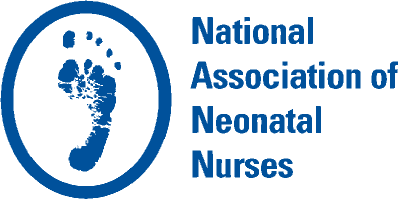Special Interest Group Update
In each issue, one of NANN's special interest groups shares information in their area of focus.
Experience-Based Co-Design: Using Family Experience to Improve Healthcare Services
Tracey Bradley-Simmons, MSN RN CCM
How many times have you sat down with a group of key stakeholders or a taskforce to work on improving a process in your neonatal intensive care unit (NICU)? Many times, I imagine, because this scenario happens often.
Were there any parents or other caregivers directly involved in your discussion? For the NICU Discharge Taskforce at Arkansas Children’s Hospital, the answer was no 2 years ago. That changed when we were introduced to a process improvement approach called Experience -Based Co-Design (EBCD) through our quality improvement (QI) work with Vermont Oxford Network’s (VON) Internet-Based Newborn Improvement Collaborative for Quality (iNICQ) Improving Critical Transitions program.
This initiative educates teams at hospitals all over the country though a web-based QI curriculum that includes webinars from subject-matter experts, toolkits, exercises, and resources to improve a critical transitions in their NICU. The collaborative defines critical transitions as “any change to the site of care, status or plan of care, or care team” (VON, n.d.).
The structured, data-driven process helps to highlight key focus areas to build a QI project around and leverages the experiences of other hospitals that have applied the process to enhance learning. Explaining the importance of this initiative, VON (n.d.) emphasized how each transition can affect an infant’s outcome or the family’s experience. The sheer number of transitions encountered during an average NICU stay emphasizes why this is an important focus for QI work.
Our team identified the most need within our discharge processes, so this transition became our focus point.
A key component of the initiative is the use of experience -based co-design (EBCD). For the NICU, EBCD involves designing changes in conjunction with families who utilize their unique experiences to inform the work, usually through a narrative-based approach. The Point of Care Foundation, a key resource in uplifting this approach, defines EBCD as an experience that enables staff and patients to co-design services or care pathways in partnership (Point of Care, n.d.). The families become key stakeholders in the process and are afforded the same level of engagement as any other member of the taskforce. This model has been a game-changer for our taskforce. Our families' insights are invaluable, and they have wowed us with their transparency, helpfulness, and passion throughout this process.
Garnering standard feedback from our families is common practice because we all want to know about the family’s experience. Unit surveys are expected to ask whether we did a good job, where we could have improved; how satisfied families were with their baby’s care, and how well nurses communicated are taught.
However, inviting families to the improvement work is a much better way to elevate their integration and, ultimately, care delivery. Our parent representatives helped shine light on several facets we are working to improve, such as revamping our orientation procedures, exploring our primary nursing assignment process, and ensuring families have an adequate opportunity to get the education they need, over a reasonable period, via a route that best suits them.
We also have found that messages shared with staff directly from our families resonate much better than the same messages shared by team members or leadership. The power of feedback from families in the form of videos that can be shared with staff is unmatched.
In the discovery phase of our work, our team recorded more than 40 hours of interviews from staff and parents, which we reduced to 20- and 10-minute summary videos, respectively, by identifying common themes to organize the content. For example, the parent video focused on Communication, Primary Nursing, the Discharge Process, and Discharge Day. The video clips featured positive and negative comments to ensure an honest representation of the interviews. The result was a powerful narrative about how both our staff and families perceived our discharge process which inspired us all to work toward a better experience and to celebrate where we exceeded expectations.
As a result of this discovery process, we now have more than 10 QI projects in progress which are co-led by our neonatologists, nursing staff, and other team members such as our March of Dimes NICU Family Support coordinator.
I am proud of the commitment our unit has made to strive for excellence in our discharge process and ensure we give our families the resources needed to have the best experience given their circumstances. I implore every unit to consider implementing the EBCD framework. Be ready to see through the new lens that this experience provides and feel the real impact this work will surely bring. Then, go out there and make a difference with the QI work that needs committed, passionate nurses who will ensure that improvement is indeed continuous and that each family’s experience is the very best it can be!
References
The Point of Care Foundation. (n.d.). 1. What is experience-based co-design? Retrieved November 1, 2021, from https://www.pointofcarefoundation.org.uk/resource/experience-based-co-design-ebcd-toolkit/step-by-step-guide/1-experience-based-co-design/
Vermont Oxford Network. (n.d.). iNICQ: Internet-Based Newborn Improvement Collaborative for Quality. Retrieved November 1, 2021, from https://public.vtoxford.org/quality-education/inicq/
Our Sponsor


